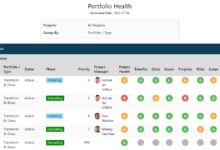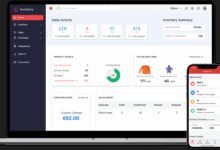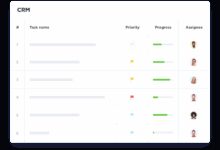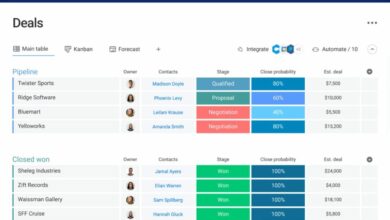Top Rated CRM Systems: 7 Ultimate Power Tools for 2024
In today’s fast-paced digital landscape, the right CRM can be a game-changer. Discover the top rated CRM systems that empower businesses to boost sales, streamline workflows, and build lasting customer relationships.
Why Top Rated CRM Systems Are Essential for Modern Businesses

In an era where customer experience defines competitive advantage, leveraging top rated CRM systems is no longer optional—it’s imperative. These platforms serve as the central nervous system of sales, marketing, and customer service operations. They consolidate customer data, automate repetitive tasks, and provide actionable insights through analytics. For small startups and global enterprises alike, a powerful CRM can dramatically improve efficiency, reduce operational costs, and increase customer retention.
Driving Sales Efficiency with Automation
One of the most compelling reasons businesses adopt top rated CRM systems is automation. From lead scoring to follow-up emails, automation reduces manual labor and ensures consistency. For example, when a prospect downloads a whitepaper, a CRM can automatically tag them, assign them to a sales rep, and trigger a personalized email sequence. This not only speeds up response times but also increases conversion rates.
- Automated lead assignment based on geography or product interest
- Follow-up email sequences triggered by user behavior
- Task reminders and calendar syncing for sales teams
According to Salesforce’s State of Sales Report, high-performing sales teams are 2.3x more likely to use CRM automation tools than underperformers.
Enhancing Customer Insights and Personalization
Top rated CRM systems go beyond storing contact details—they create 360-degree customer views. By integrating data from email, social media, website interactions, and support tickets, CRMs help businesses understand customer behavior and preferences. This enables hyper-personalized marketing and service experiences.
“The more you know about your customer, the better you can serve them.” — Marc Benioff, CEO of Salesforce
For instance, a CRM might reveal that a customer frequently purchases eco-friendly products. Marketing teams can then tailor campaigns around sustainability, increasing engagement and loyalty.
Criteria for Evaluating Top Rated CRM Systems
Not all CRMs are created equal. To identify the truly top rated CRM systems, businesses must evaluate them based on several key criteria. These benchmarks ensure that the chosen platform aligns with organizational goals, scales with growth, and delivers a strong return on investment.
User-Friendliness and Interface Design
A CRM’s effectiveness is directly tied to user adoption. If the interface is clunky or unintuitive, employees may resist using it, leading to data silos and inefficiencies. The best top rated CRM systems feature clean, modern dashboards with drag-and-drop functionality, customizable views, and mobile accessibility.
- Intuitive navigation and minimal learning curve
- Responsive design for desktop and mobile devices
- Customizable dashboards and reporting widgets
Platforms like HubSpot and Zoho CRM are often praised for their user-centric design, making them ideal for teams with limited technical expertise.
Integration Capabilities
No CRM operates in isolation. The top rated CRM systems seamlessly integrate with email platforms (like Gmail and Outlook), marketing automation tools (such as Mailchimp), e-commerce platforms (like Shopify), and customer support software (e.g., Zendesk). These integrations eliminate data duplication and ensure a unified workflow across departments.
For example, connecting your CRM to your email client allows you to log every sent message automatically, providing a complete communication history. According to Gartner, organizations that prioritize integration see up to 30% higher CRM adoption rates.
1. Salesforce: The Undisputed Leader Among Top Rated CRM Systems
Salesforce consistently ranks as the #1 CRM globally, and for good reason. With over 150,000 customers and a market share exceeding 19%, it dominates the landscape. Its cloud-based architecture, extensive customization options, and vast AppExchange ecosystem make it the go-to choice for enterprises and mid-sized businesses.
Comprehensive Sales Cloud Features
Salesforce’s Sales Cloud is a powerhouse for managing leads, opportunities, and pipelines. It offers advanced forecasting, AI-powered insights via Einstein Analytics, and real-time collaboration tools. Sales reps can track every interaction, set automated tasks, and receive intelligent recommendations on next steps.
- AI-driven lead scoring and predictive analytics
- Customizable sales pipelines and stages
- Mobile app with offline access and voice-to-text notes
Its robust API allows deep integration with ERP systems, CPQ tools, and third-party applications, making it highly adaptable to complex business processes.
Service Cloud and Marketing Cloud Integration
Beyond sales, Salesforce excels in customer service and marketing. The Service Cloud provides omnichannel support, case management, and a knowledge base, while Marketing Cloud enables personalized email campaigns, journey builder workflows, and social media engagement tracking.
For businesses looking for a unified platform, Salesforce offers a complete suite that breaks down silos between departments. This holistic approach is why it remains a top rated CRM system across industries.
2. HubSpot CRM: Best for Small to Mid-Sized Businesses
HubSpot CRM has earned its place among the top rated CRM systems by offering a powerful free tier and an exceptionally user-friendly interface. Designed with inbound marketing principles in mind, it’s ideal for startups and growing companies that want to scale their customer relationships without breaking the bank.
Free Tier with Full-Featured Functionality
Unlike many competitors, HubSpot’s free CRM includes contact management, deal tracking, task automation, email tracking, and live chat. This makes it one of the most accessible top rated CRM systems for small businesses testing the waters.
- No cost for core CRM features
- Unlimited users and contacts
- Integration with HubSpot’s marketing, sales, and service hubs
As businesses grow, they can upgrade to paid tiers for advanced features like reporting, custom reporting, and team permissions.
Inbound Marketing and Automation Tools
HubSpot’s strength lies in its seamless blend of CRM and marketing automation. Users can create landing pages, manage email campaigns, and track website visitors—all within the same platform. The workflow automation engine allows for sophisticated nurturing sequences based on user behavior.
For example, if a visitor downloads a guide, HubSpot can automatically add them to a nurture sequence, assign a sales rep, and send a follow-up email after three days. This level of integration is rare in free CRM tools, solidifying HubSpot’s status as a top rated CRM system.
3. Zoho CRM: The Most Customizable Option Among Top Rated CRM Systems
Zoho CRM stands out for its flexibility and affordability. With over 50 million users worldwide, it’s a favorite among small and medium-sized businesses that need deep customization without enterprise-level pricing. Its AI assistant, Zia, adds intelligent insights and automation, making it a smart choice for data-driven teams.
Adaptive Workflow Automation
Zoho CRM allows users to build complex workflows using a visual editor. You can automate everything from lead assignment rules to approval processes and notifications. The platform supports multi-channel communication, including email, SMS, and social media, ensuring no lead falls through the cracks.
- Blueprint for approval workflows (e.g., discount approvals)
- Dynamic forms that change based on user input
- Round-robin or load-based lead assignment
These features make Zoho CRM particularly effective for industries with complex sales cycles, such as real estate or financial services.
AI-Powered Insights with Zia
Zia, Zoho’s AI engine, provides predictive lead scoring, sentiment analysis, and sales forecasting. It can even suggest the best time to contact a lead based on past interactions. This level of intelligence helps sales teams prioritize high-value opportunities and improve conversion rates.
Additionally, Zia can transcribe voice calls and extract key insights, reducing manual note-taking. For businesses seeking a balance between affordability and advanced features, Zoho CRM is a top rated CRM system that delivers exceptional value.
4. Microsoft Dynamics 365: Best for Enterprise Integration
For organizations already invested in the Microsoft ecosystem, Dynamics 365 is a natural fit. As one of the top rated CRM systems for large enterprises, it integrates seamlessly with Office 365, Teams, SharePoint, and Power BI. This tight integration reduces friction and enhances productivity across departments.
Deep Integration with Microsoft 365
Dynamics 365 allows users to manage CRM data directly from Outlook, Excel, and Word. Sales reps can log calls, update records, and send emails without leaving their familiar Microsoft environment. This reduces training time and increases user adoption.
- Synchronize contacts, calendars, and emails with Outlook
- Embed CRM data into Excel for advanced analysis
- Host virtual meetings in Teams with CRM context
This level of integration is unmatched by most competitors, making Dynamics 365 a strategic choice for Microsoft-centric organizations.
Advanced Analytics with Power BI
Dynamics 365 leverages Power BI to deliver real-time dashboards and predictive analytics. Managers can visualize sales performance, track KPIs, and drill down into customer data with ease. Custom reports can be shared across teams, enabling data-driven decision-making at all levels.
For enterprises requiring compliance, security, and scalability, Dynamics 365 offers robust governance features and global data centers, further cementing its status as a top rated CRM system.
5. Pipedrive: Ideal for Sales-Focused Teams
Pipedrive is built by salespeople, for salespeople. Its visual pipeline interface makes it easy to track deals and forecast revenue. Among the top rated CRM systems for sales-driven organizations, Pipedrive emphasizes simplicity, clarity, and actionable insights.
Visual Sales Pipeline Management
Pipedrive’s drag-and-drop interface allows users to move deals through stages with a single click. Each deal card displays key details—contact info, notes, activities, and value—providing a clear overview of the sales process.
- Customizable pipeline stages aligned with your sales process
- Activity reminders and time tracking
- Revenue forecasting based on pipeline data
This visual approach helps sales teams stay focused and prioritize high-impact activities.
Advanced Sales Automation
Pipedrive offers automation rules that trigger actions based on specific conditions. For example, if a deal hasn’t been updated in seven days, the system can automatically send a follow-up email or assign a reminder. This keeps deals moving and reduces manual oversight.
Additionally, Pipedrive integrates with over 400 tools via its marketplace, including Zoom, Slack, and QuickBooks, making it a flexible choice for growing sales teams.
6. Freshworks CRM (Formerly Freshsales): Best for AI-Driven Insights
Freshworks CRM combines ease of use with powerful AI capabilities. Known for its clean interface and smart features, it’s a rising star among top rated CRM systems, especially for mid-market companies seeking intelligent automation.
Blossom: AI-Powered Deal Insights
Freshworks’ AI engine, Blossom, analyzes deal health by examining communication patterns, engagement levels, and historical data. It flags at-risk deals and recommends actions to improve closure rates. For example, if a lead hasn’t responded to emails, Blossom might suggest a phone call or a personalized video message.
- Deal health scoring based on engagement
- Next-best-action recommendations
- Automated data entry using natural language processing
This proactive guidance helps sales teams work smarter, not harder.
Integrated Phone and Email System
Freshworks CRM includes a built-in phone system and email client, allowing users to make calls, send emails, and log interactions without switching apps. Call recordings, voicemails, and transcripts are automatically saved, creating a complete audit trail.
This level of integration enhances productivity and ensures compliance, making Freshworks CRM a top rated CRM system for teams that rely heavily on direct communication.
7. Monday.com CRM: The Most Visual and Collaborative Option
While not a traditional CRM, Monday.com has evolved into a powerful customer relationship platform with its visual workflow system. It’s particularly popular among creative teams, project managers, and service-based businesses looking for a collaborative CRM experience.
Visual Workflows and Custom Boards
Monday.com uses color-coded boards, timelines, and kanban views to represent customer journeys. Each lead or client can have a dedicated board with tasks, deadlines, files, and team assignments. This visual approach fosters transparency and accountability.
- Customizable workflows for onboarding, support, or sales
- Time tracking and workload management
- Automated status updates and notifications
Its flexibility makes it ideal for non-linear sales processes or service delivery models.
Team Collaboration and Task Management
Unlike traditional CRMs, Monday.com emphasizes team collaboration. Team members can comment on tasks, tag colleagues, and share files in real time. This reduces email clutter and keeps everyone aligned.
For businesses that value teamwork and project-based client management, Monday.com offers a fresh perspective on what a top rated CRM system can be.
How to Choose the Right Top Rated CRM System for Your Business
Selecting the right CRM isn’t a one-size-fits-all decision. The best choice depends on your business size, industry, budget, and specific goals. Here’s a step-by-step guide to help you make an informed decision among the top rated CRM systems.
Assess Your Business Needs and Goals
Start by identifying your primary objectives. Are you looking to improve sales productivity? Enhance customer service? Automate marketing campaigns? Define key performance indicators (KPIs) such as lead conversion rate, customer retention, or average deal size.
For example, a B2B software company might prioritize lead scoring and pipeline visibility, while an e-commerce brand may focus on customer segmentation and email automation.
Evaluate Scalability and Total Cost of Ownership
Consider not just the upfront cost but the long-term expenses, including user licenses, add-ons, training, and integration. Some top rated CRM systems offer low entry prices but charge heavily for advanced features or additional users.
Also, assess scalability. Will the CRM grow with your business? Can it handle increased data volume and user load? Cloud-based systems like Salesforce and HubSpot offer excellent scalability, while on-premise solutions may require significant IT investment.
Test with a Free Trial or Demo
Most top rated CRM systems offer free trials or live demos. Take advantage of these to test usability, performance, and feature alignment. Involve key stakeholders—sales reps, marketers, and customer service agents—in the evaluation process to ensure broad buy-in.
During the trial, simulate real-world scenarios: import sample leads, create workflows, and generate reports. This hands-on experience is invaluable for making a confident decision.
What are the top rated CRM systems in 2024?
The top rated CRM systems in 2024 include Salesforce, HubSpot CRM, Zoho CRM, Microsoft Dynamics 365, Pipedrive, Freshworks CRM, and Monday.com. Each excels in different areas—Salesforce for enterprise scalability, HubSpot for inbound marketing, Zoho for customization, and Pipedrive for sales pipeline management.
Which CRM is best for small businesses?
HubSpot CRM is widely regarded as the best for small businesses due to its free tier, ease of use, and integrated marketing tools. Zoho CRM and Pipedrive are also excellent choices, offering affordability and sales-focused features.
Do top rated CRM systems support mobile access?
Yes, all top rated CRM systems offer mobile apps for iOS and Android. These apps provide full functionality, including contact management, task tracking, and pipeline updates, enabling teams to stay productive on the go.
How much do top rated CRM systems cost?
Pricing varies widely. HubSpot CRM offers a free plan, while Salesforce starts at $25/user/month. Zoho CRM starts at $14/user/month, and Pipedrive at $14.90/user/month. Enterprise solutions like Dynamics 365 can cost $200+/user/month with additional modules.
Can CRM systems integrate with email and marketing tools?
Absolutely. Top rated CRM systems integrate seamlessly with email platforms (Gmail, Outlook), marketing automation tools (Mailchimp, ActiveCampaign), and e-commerce platforms (Shopify, WooCommerce), ensuring a unified workflow across departments.
Choosing the right CRM is a strategic decision that can transform how your business engages with customers. The top rated CRM systems—Salesforce, HubSpot, Zoho, Microsoft Dynamics, Pipedrive, Freshworks, and Monday.com—each offer unique strengths tailored to different business needs. By evaluating your goals, budget, and scalability requirements, you can select a platform that not only meets today’s demands but also supports future growth. Ultimately, the best CRM is the one your team will use consistently and effectively.
Further Reading:






